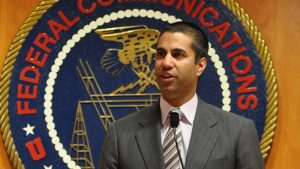A new study by the Science, Technology, and Public Policy Program (STPP) at the Gerald R. Ford School of Public Policy at the University of Michigan argues that schools should ban the use of facial recognition technology, citing limited efficacy and other issues.
The chairman of the Federal Communications Commission (FCC) declared victory in a case involving the regulatory power of local governments and the installation of 5G infrastructure.
When New Mexico State University (NMSU) students return for classes this fall, whether in-person or online, their classrooms will be quite different than when they left school last spring. In an Aug. 13 press release, NMSU detailed all of the new classroom technology upgrades awaiting students and professors.
To help universities protect COVID-19 research, Reps. Andy Barr, R-Ky., and Frank Lucas, R-Okla., introduced legislation to give those universities and research institutions tools to protect from cyberattacks by foreign cyber actors.
As state governments look to slow the spread of COVID-19, they are having to stand up massive contact tracing efforts practically overnight. When deciding how to best tackle the new project, the state of Maryland turned to a cloud-based call center.
New research from London-based Pearson finds that three-quarters of respondents to its Global Learner Survey believe that the coronavirus pandemic has “fundamentally changed” education toward more technology-centric delivery modes, with two-thirds of those surveyed saying that educational institutions need to improve their technology services to keep up with the trend.
The Hawaiʻi State Department of Education (HIDOE) announced the launch of its ʻOhana Help Desk, which will provide self-service and chat support for families experiencing issues connecting to HIDOE systems remotely from home. In an Aug. 4 press release, HIDOE said the state has invested $1.7 million to establish the help desk.
A Department of State program is offering up to $10 million to help identify bad actors, individuals who are working with or for a foreign government with the purpose of interfering with U.S. elections through certain cyber acts.
A top U.S. intelligence community leader said today the IC doubts the ability of U.S. adversaries to manipulate the results of U.S. general election voting in any widespread way, while warning that exploits may be attempted against election infrastructure with a goal of interfering with voting processes, stealing data, and casting doubt on the democratic process.
The Illinois Department of Innovation & Technology (DoIT) announced Aug. 6 the publication of a new website to provide a consolidated resource for Science, Technology, Engineering, Arts, and Mathematics (STEAM) in Illinois.













